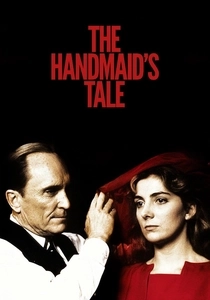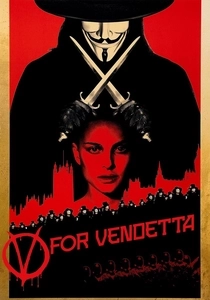Propaganda has always been a powerful tool for shaping public opinion, and in the realm of science fiction, it often takes on a life of its own. These films delve into dystopian futures, alternate realities, and mind-bending scenarios where propaganda is not just a tool but a central theme. From mind control to societal manipulation, these movies offer a chilling look at how propaganda can influence and control entire civilizations. Here's a curated list of 10 sci-fi films that explore this fascinating and often terrifying theme.

The Manchurian Candidate (1962)
Description: This classic thriller uses propaganda and brainwashing as central themes, showing how a soldier is programmed to assassinate a political figure. It's a chilling look at how propaganda can be used to manipulate individuals for political gain.
Fact: The film was remade in 2004 with Denzel Washington, but the original remains a powerful commentary on Cold War paranoia and political manipulation.
 Watch Now
Watch Now 
THX 1138 (1971)
Description: George Lucas's debut feature film depicts a future where drugs and propaganda are used to suppress individuality and maintain a controlled society. It's a stark look at how propaganda can be used to erase personal identity.
Fact: The film was originally a student project at USC, and Lucas later expanded it into a feature film. The title "THX 1138" has become an Easter egg in many of Lucas's subsequent works.
 Watch Now
Watch Now 
A Clockwork Orange (1971)
Description: Stanley Kubrick's adaptation of Anthony Burgess's novel uses propaganda to explore themes of free will, violence, and societal control. The government uses media and propaganda to manipulate public opinion and behavior.
Fact: Kubrick withdrew the film from UK cinemas due to concerns over copycat violence. It was not re-released in the UK until after his death in
 Watch Now
Watch Now 
Brazil (1985)
Description: Terry Gilliam's dark comedy portrays a bureaucratic dystopia where propaganda is used to distract from the government's inefficiency and corruption. The film satirizes the idea of a society where propaganda is so pervasive that it becomes the reality.
Fact: The film was originally titled "1984 1/2" as a nod to George Orwell's "
 Watch Now
Watch Now 
They Live (1988)
Description: John Carpenter's film features a drifter who discovers that aliens are controlling humanity through subliminal messages in media. It's a direct commentary on consumerism and propaganda in society.
Fact: The film's famous "OBEY" and "CONSUME" messages have become iconic symbols of resistance against corporate and government control.
 Watch Now
Watch Now 
The Handmaid's Tale (1990)
Description: While the film adaptation of Margaret Atwood's novel isn't as well-known as the TV series, it still explores a society where propaganda is used to justify the subjugation of women and the control of reproduction.
Fact: The film was overshadowed by the book's popularity and the later TV series, but it remains a poignant adaptation of Atwood's dystopian vision.
 Watch Now
Watch Now 
The Matrix (1999)
Description: While not explicitly about propaganda, the film explores a world where reality is a construct, and the machines use propaganda to keep humans docile. The idea of a simulated reality as a form of control is a central theme.
Fact: The Wachowskis were influenced by various philosophical and religious texts, including Plato's Allegory of the Cave, when crafting the story. The film's special effects, particularly "bullet time," revolutionized action sequences in cinema.
 Watch Now
Watch Now 
Equilibrium (2002)
Description: In a future where emotions are outlawed, the government uses propaganda to maintain control over the populace. The film explores themes of conformity, resistance, and the power of art as a form of rebellion against oppressive propaganda.
Fact: The film was inspired by Ray Bradbury's "Fahrenheit 451" and Aldous Huxley's "Brave New World." It was also shot in Berlin, Germany, to give the city a futuristic, oppressive feel.
 Watch Now
Watch Now 
V for Vendetta (2005)
Description: Set in a future Britain under fascist rule, this film uses propaganda to maintain control over the populace. V, the masked vigilante, fights against the oppressive regime, highlighting the power of symbols and propaganda in shaping public perception.
Fact: The film was adapted from Alan Moore's graphic novel, and Moore famously disowned the film adaptation. The iconic Guy Fawkes mask has since become a symbol of protest worldwide.
 Watch Now
Watch Now 
The Hunger Games (2012)
Description: In a dystopian future, the Capitol uses the Hunger Games as a form of propaganda to control the districts. The film explores themes of rebellion, survival, and the manipulation of public perception through media.
Fact: The film's setting was inspired by ancient Rome, particularly the gladiatorial games, and the story was influenced by reality TV shows like "Survivor."
 Watch Now
Watch Now 








